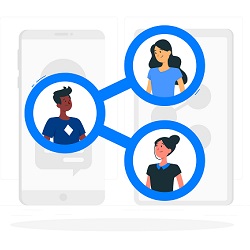
Starting a PhD is a major milestone in your academic journey. The shift from master’s to PhD can feel overwhelming, but with clear planning and the right mindset, you can thrive. It is a time of embracing uncertainty, managing multiple responsibilities, and committing to continuous learning as a PhD student. Strong time management from day one will help you stay focused and balanced. Your first week plays a crucial role in setting the tone for your research and personal growth ahead. This blog is here to guide you through those early days by offering practical tips, honest insights, and encouragement to help you start your PhD with clarity and confidence.
What to Expect as a PhD Student in Week One
Orientation and Administrative Tasks
Your first week as a PhD student often begins with orientation sessions in O-Week (also called Frosh Week, Welcome Week, or Freshers’ Week). It is the week before the semester starts. Universities typically organize events to introduce PhD students to campus resources, faculty, and peers. Expect to complete paperwork, secure your student ID, and register for courses or seminars. These administrative tasks might seem tedious, but they are essential. They ensure you are fully integrated into the academic system as a PhD student. Arrive prepared with identification and any pre-submitted documents to streamline the process.
Exploring Your Relevant Network
Meeting Your PhD Supervisor(s)
One of the most important moments for any PhD student is the first meeting with their PhD supervisor. This person will play a central role in guiding your research, reviewing your manuscripts, offering feedback, and supporting your academic and professional development. Come to this meeting prepared with questions about expectations, timelines, and goals for your project. Your supervisor may also introduce you to the lab or research group during this time. Establishing a clear, collaborative relationship from the start helps create a productive working environment. It is also a valuable opportunity to align your vision with theirs and set the tone for the years ahead till your PhD viva.
Defining Your Research Scope as a PhD candidate
Your initial meetings with your main and co-supervisor (if already assigned) are a valuable opportunity to define or refine your research focus. Review your proposal or discuss your ideas to gain clarity and direction. Clearly outlining your objectives will help ensure a manageable and well-defined scope, reducing the risk of becoming overwhelmed later in your PhD. A focused approach allows you to allocate your time and resources more effectively. Use this stage to draft a rough timeline that includes key milestones such as literature reviews, experiments, writing deadlines, and conference submissions. Setting a clear plan early on lays the groundwork for a productive and less stressful journey.
Setting Up Your Workspace
Whether in a lab or an office, a PhD student needs a well-organized and efficient workspace. Your supervisor typically arranges your desk, a lab book if required, a computer, and the essential tools to support your work over the coming years. You can personalize your space with items that inspire you, such as motivational quotes or calming decorations, to make it more comfortable. A clean, clutter-free environment improves focus and reduces distractions. Take time to test any equipment, software, or analytical tools you will use regularly to ensure everything works properly. This early preparation helps prevent disruptions and supports a smoother, more productive workflow.
Connecting with PhD Student Peers
With their support, encouragement, and shared experiences, your fellow PhD candidates can become invaluable allies. Attend departmental gatherings, social events, or group meetings during your first week to start building these connections. Forming relationships early fosters a sense of community and eases the transition into doctoral life. These connections can lead to collaborations on research projects, study groups, and much-needed emotional support during challenging times. Early networking also helps you understand the program’s expectations, culture, and hidden opportunities. Exchange ideas, share experiences, and learn from others’ problem-solving strategies. These relationships often last well beyond your PhD, shaping your future academic and professional networks.

Establishing a Support System
Beyond supervisors and peers, seek out mentors, supportive faculty members, or family who uplift and motivate you. A strong, reliable network can encourage you during difficult times and celebrate your progress, no matter how small. Share your goals and research aspirations with them during your first week to build a foundation of trust and accountability. This support system helps keep you grounded as you adjust to the demands of PhD life. Emotional support complements academic guidance by easing stress, strengthening resilience, and creating a sense of belonging. Together, these elements form a vital foundation for long-term success in your PhD journey.
Exploring Campus Resources and Research Tools
Universities offer PhD students valuable access to libraries, research databases, and laboratories. Take time during your first week to explore and become familiar with these resources. Find suitable study spaces, join a library tour, and test essential tools such as statistical software like Minitab or citation managers like EndNote. These resources form the foundation of your research. Knowing how to access them early on will save time and increase your efficiency. Make notes on login procedures or booking systems to prevent future issues. Ask your supervisor or peers for resource recommendations specific to your field. Getting comfortable with these tools now sets you up for success later.
Build Your Confidence as a PhD Candidate
Your first week as a PhD student can be overwhelming, filled with meetings, orientations, and the challenge of adjusting to a new academic environment. To maintain your mental and physical well-being, engage in stress-relieving activities such as journaling, meditation, or regular exercise. A calm mind enhances focus, creativity, and problem-solving, all of which are essential for tackling complex research. Prioritize sleep and nutrition, since fatigue can negatively impact your productivity and resilience. Healthy habits not only improve performance but also help build the confidence and stamina needed for the journey ahead.
Organize Your Schedule
Use your first week to create a flexible yet structured schedule that balances research, coursework, and personal time. Tools like digital calendars, task managers, and productivity apps can help a PhD student keep track of meetings, deadlines, and milestones. Establishing a routine early reduces stress and prevents missed opportunities. Plan regular writing sessions, supervisor meetings, seminars, and time for self-care. With an organized approach, you can adapt to shifting priorities without losing focus or becoming overwhelmed.

Embrace the Learning Curve
During your first week as a PhD candidate, you may face unfamiliar theories, methods, and academic expectations. Instead of feeling discouraged, view these challenges as opportunities to grow. Confidence develops through small victories, such as understanding a complex paper or solving a technical problem. Ask questions, seek feedback, and learn from peers and mentors. Cultivating curiosity and resilience from the start prepares you to handle the intellectual and emotional demands of your PhD journey with strength and adaptability. Reflect on the reasons you chose to pursue a PhD. Define your long-term goals, whether they involve making a scientific contribution or advancing your career. Write them down clearly and revisit them when you face challenges or moments of doubt.
Document Your Progress
Make it a habit to document meetings, ideas, research plans, and feedback from the very beginning of your journey as a PhD student. Keeping clear and consistent records will help you track your development over time, recall important details, and stay organized. You can use notebooks, digital apps, or even voice memos to record discussions, action points, and evolving thoughts. This practice not only enhances your ability to reflect on your progress but also strengthens communication with your supervisor and research collaborators. Well-maintained documentation simplifies the process of writing papers, grant proposals, and presentations. It also showcases your professionalism and attention to detail, which are essential qualities for academic and research success.
Ask for Help
When challenges arise, do not hesitate to ask for help. It is a sign of strength, not weakness. A PhD student often faces academic hurdles, technical difficulties, or emotional lows, and trying to manage everything alone can quickly become overwhelming. Fortunately, a wide range of support is available. For academic or research concerns, reach out to your supervisor, course instructors, or experienced peers. For technical issues, contact the IT staff or the digital resource teams. Librarians can assist with research tools and citation support. Emotional support is equally important, so talk to friends, university counselors, or join mental health initiatives. Asking for help encourages collaboration, builds resilience, and contributes to long-term success.
Conclusion
Your first week as a PhD student sets the foundation for your entire journey. By approaching it with curiosity, structure, and self-awareness, you can ease the transition and begin building momentum. Take advantage of the resources, relationships, and routines that will support your academic and personal growth. Remember, it is normal to feel uncertain, but every small step, whether organizing your calendar, asking a question, or connecting with a peer, adds up to meaningful progress. This early phase is not about perfection but about creating habits and confidence that will carry you through the years ahead. Start strong, stay open, and trust your path forward.
Frequently Asked Questions (FAQs)
What should I expect during my first week as a PhD student?
You will attend orientation sessions, complete administrative tasks, meet your supervisor, and begin setting up your workspace and research direction.
How can I build a support system as a PhD student?
Connect with peers, mentors, and faculty early on. Join academic groups, attend social events, and share your goals with people who can encourage and support you.
Why is documentation important from the start of a PhD?
It helps a PhD student stay organized, track progress, recall key discussions, and simplify writing papers or proposals. It also improves communication with your supervisor.




0 Comment